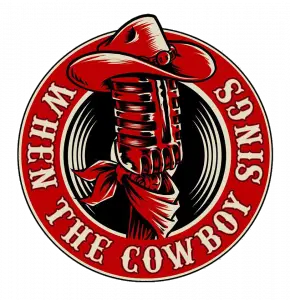Hiram «Hank» Williams (September 17, 1923 – January 1, 1953) was an American singer, songwriter, and musician. Regarded as one of the most significant and influential American singers and songwriters of the 20th century, he recorded 35 singles (five released posthumously) that reached the top 10 of the Billboard Country & Western Best Sellers chart, including 11 that reached No. 1 (three posthumously).
Born and raised in Alabama, Williams was given guitar lessons by African-American blues musician Rufus Payne in exchange for meals or money. Payne, along with Roy Acuff and Ernest Tubb, had a major influence on Williams’s later musical style. Williams began his music career in Montgomery in 1937, when producers at local radio station WSFA hired him to perform and host a 15-minute program. He formed the Drifting Cowboys backup band, which was managed by his mother, and dropped out of school to devote his time to his career. When several of his band members were drafted during World War II, he had trouble with their replacements, and WSFA terminated his contract because of his alcoholism.
Williams married singer Audrey Sheppard, who was his manager for nearly a decade. After recording «Never Again» and «Honky Tonkin'» with Sterling Records, he signed a contract with MGM Records. In 1947, he released «Move It on Over», which became a hit, and also joined the Louisiana Hayride radio program. One year later, he released a cover of «Lovesick Blues», which carried him into the mainstream. After an initial rejection, Williams joined the Grand Ole Opry. He was unable to read or notate music to any significant degree. Among the hits he wrote were «Your Cheatin’ Heart», «Hey, Good Lookin'», and «I’m So Lonesome I Could Cry».
Years of back pain, alcoholism, and prescription drug abuse severely compromised Williams’s health. In 1952, he divorced Sheppard and married singer Billie Jean Horton. He was dismissed by the Grand Ole Opry because of his unreliability and alcoholism. On New Year’s Day 1953, he suffered from heart failure and died suddenly at the age of 29 in Oak Hill, West Virginia. Despite his relatively brief career, he is one of the most celebrated and influential musicians of the 20th century, especially in country music. Many artists have covered his songs and he has influenced Elvis Presley, Bob Dylan, Johnny Cash, Chuck Berry, Jerry Lee Lewis, George Jones, George Strait, Charley Pride, and The Rolling Stones, among others. Williams was inducted into the Country Music Hall of Fame in 1961, the Songwriters Hall of Fame in 1970, and the Rock and Roll Hall of Fame in 1987. The Pulitzer Prize jury awarded him a posthumous special citation in 2010 for his «craftsmanship as a songwriter who expressed universal feelings with poignant simplicity and played a pivotal role in transforming country music into a major musical and cultural force in American life»…..





